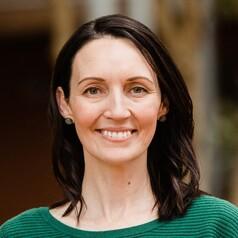
Elizabeth Murray
Senior Lecturer, Education, School of Education, Charles Sturt University
Dr Elizabeth Murray is Senior Lecturer an Academic Program Lead in the School of Education. She is Lead Researcher for Positive Living Skills Australia, Co-Lead of Charles Sturt University's Wellbeing and Mental Health Research Group, and Co-Lead of Charles Sturt University's Early Childhood Interdisciplinary Research Group. Dr Murray is also Academic Program Lead for two large projects: The Grow Your Own Teacher Training program, and the Collaborative Teacher's Aide Pathway program.
Less ![]()
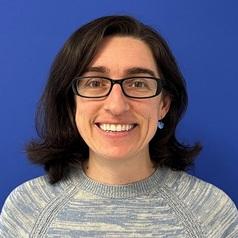
Elizabeth Renner
Lecturer of Psychology, Northumbria University, Newcastle
I completed my PhD at the George Washington University on the topic of social learning (how children, adults, and great apes learn on their own and from others). I am now a lecturer in the Psychology Department at Northumbria University. I am interested in how individuals of different species learn and behave.
Less ![]()
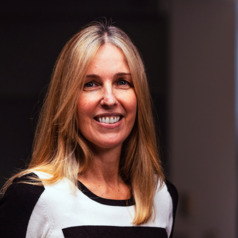
Elizabeth Rieger
Associate Director Education (Psychology), School of Medicine & Psychology, Australian National University
I have now been a practicing Clinical Psychologist for 25 years, having undertaken my clinical training at the University of Sydney.
My main clinical experience has included treating adults with eating disorders, medical patients with accompanying psychological problems, and children and adults with obesity, working in public and private hospitals, university clinics, and private practice. I have also been involved in teaching clinical skills to diverse populations including clinical psychologists and intern clinical psychologists, general practitioners, nurses, and medical students.
In 2001, I completed my PhD, the focus of which was on developing an instrument to assess motivation to change in anorexia nervosa (the Anorexia Nervosa Stages of Change Questionnaire). From 2001-2, I completed a post-doctoral fellowship at the Centre for Eating and Weight Disorders (University of California, San Diego and San Diego State University) where I was trained in interpersonal psychotherapy and undertook an NIH-funded randomised controlled trial for children and adults with obesity. I commenced my academic role as a Lecturer in the School of Psychology at the University of Sydney in 2003 and Senior Lecturer in 2008 before commencing as a Senior Lecturer in the Department of Psychology at the Australian National University in 2009 and Associate Professor in 2012.
I continue to specialise in eating disorders and obesity in my research and clinical work. I am a member of the Eating Disorders Research Society, the Australia and New Zealand Academy for Eating Disorders, the College of Clinical Psychologists of the Australian Psychological Society, and the Australian Clinical Psychology Association.
Less ![]()

Elizabeth Simon
Postdoctoral Researcher in British Politics, Queen Mary University of London
Elizabeth is a Postdoctoral Researcher in British Politics, based in the Mile End Institute and QMUL's School of Politics and International Relations. She has recently completed her PhD at the University of Southampton.
Elizabeth's research explores how education attainment - and a range of other life experiences and socio-demographic characteristics - shape public opinion, electoral behaviour, and wider society, in modern Britain. Her research interests extend broadly across the topic of political behaviour and she is currently working on a number of projects that relate to issues of identity formation and inequality.
Her research has been cited in the Financial Times, The Guardian, as well as the Times Higher Education Supplement.
Less ![]()

Elizabeth Smyth
Research Associate, James Cook University
Elizabeth Smyth is a writer and researcher with a focus on literary representation and experience of place. Her creative-practice research engages with regionalism, ecocriticism, and the georgic to respond to contemporary social and environmental issues and concerns. She writes both long and short forms of narrative prose set in the Australian Wet Tropics.
Less ![]()
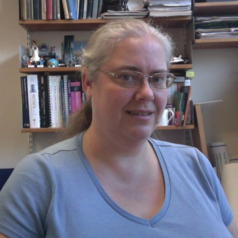
Elizabeth Stanway
Reader in Astronomy and Astrophysics, University of Warwick
I am a Reader in the Astronomy and Astrophysics group at the University of Warwick with a specific interest in the study of stellar populations and their role in observational cosmology, both at optical and radio wavelengths. The question of how the universe evolved, from the birth of the first stars to the highly structured and massive galaxies we see around us today, is one of the most fundamental that astrophysicists seek to address. It underpins our understanding of nearby galaxies, and is a key driver for the development of the next generation of telescopes. By modelling the stars that combine to produce the light we see from unresolved galaxies I work to improve our understanding of distant systems.
I also publish on the role of science fiction in popular understanding of science, and on the history of astronomy. I post articles on the mutual influence between science and science fiction twice monthly on my Cosmic Stories blog, which can be found at www.warwick.ac.uk/cosmicstories.
Less ![]()
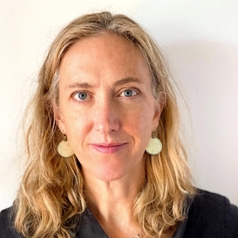
Elizabeth Stites
Associate Research Professor of International Relations, Tufts University
Elizabeth Stites directs the Feinstein International Center’s Research Program on Conflict and Livelihoods, focused on the effects of conflict and violence on civilian livelihoods. She is particularly interested in how different members within a household make changes to their livelihoods in times of conflict or crisis, and also how violence and livelihood strategies can reinforce each other. On the policy level she examines the effects of humanitarian, development, and military policies on livelihoods, security, and gender roles. Her field work aims to improve the effectiveness of international and national policies through evidence-based research reflecting the lived experiences of local communities. She aims to understand the challenges and hopes that inform people’s daily decision making, and strives to ensure that local people’s voices and experiences are heard in contexts in which they are often invisible. She has worked in multiple countries in sub-Saharan Africa, in Afghanistan, Bosnia, and Nepal and on the Syria crisis.
Prior to joining Feinstein, Stites worked as a consultant to UN organizations, academic centers, and international non-profits. She lived in South Africa for four years in the 1990s, where she researched post-apartheid land restitution and worked closely with families, community groups, government agencies, and non-profit organizations. She holds a B.A. from Wesleyan University, an M.A. from the University of Cape Town (South Africa), and an M.A.L.D. and a Ph.D. from The Fletcher School at Tufts University.
Less ![]()
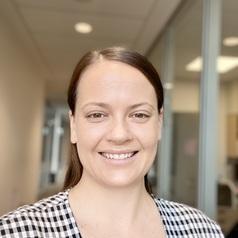
Elizabeth Stratton
Postdoctoral Research Fellow, University of Sydney
Dr Elizabeth Stratton is a postdoctoral researcher with The University of Sydney. Her body of work has focused on the stigma, discrimination and disability of mental health in the workplace and, importantly, developing and evaluating ways to tackle this.
Elizabeth developed a world first web-based decision aid tool to assist employees in deciding if and how they should disclose their mental health problem or not. The rationale behind this research was the complexity of disclosure decision-making, and the identification of several barriers to disclosure. The program, called “READY?” was evaluated in a randomised controlled trial (RCT) trial where it was shown to be more effective in terms of disclosure and improving people’s mental health than the online disclosure and discrimination information provided by Australia’s leading mental health charity. Those using READY? experienced an improvement in depressive symptoms and reported greater decision confidence. ONLY participants who used READY? subsequently disclosed their condition, and the 25% who did disclose experienced even greater mental health benefits.
As an end-user focussed researcher, she has partnered with the NSW government’s Mentally Healthy Workplace program to bring READY? to scale and make it freely available to 100,000’s of workers. The early phases of her ECR carer are focussed on evaluating the uptake and real-world impact of this in mental health and wellbeing.
Additionally, she has developed strong evidence synthesis skills leading to several published systematic reviews of mental health and wellbeing interventions.
Less ![]()
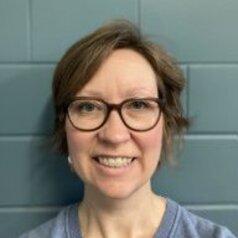
Elizabeth Swanner
Associate Professor of Geology, Iowa State University
I am a biogeochemist with expertise in anoxic aquatic systems. I study microbial processes that transform inorganic chemical species, particularly metals such as iron. I am interested in the rise of oxygen on Earth, and photosynthetic organisms that drove environmental evolution.
Less ![]()

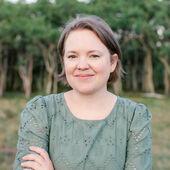
Elizabeth Tingle
Coordinator for the Body Image Research Lab; Lecturer at the Werklund School of Education, University of Calgary
Less ![]()
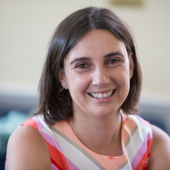
Elizabeth Vaquera
Associate Professor of Sociology and Public Policy & Public Administration, George Washington University
Less ![]()
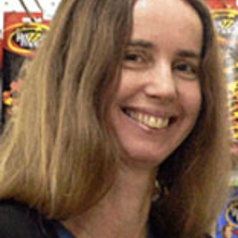
Elizabeth Webster
Professor Beth Webster is the Director of the Centre for Transformative Innovation at Swinburne University of Technology. Her area of study is the economics of how knowledge is created and diffuses through the economy. On these topics alone she has authored over 100 articles in outlets such as RAND Journal of Economics, Review of Economics and Statistics, Oxford Economic Papers, Journal of Law & Economics and Cambridge Journal of Economics. She has been appointed to a number of committees including the Lomax-Smith Base funding Review; CEDA Advisory Council; the Bracks Automotive review; the Advisory Council for Intellectual Property; the European Policy for Intellectual Property Association; the Economic Society of Victoria and the Asia Pacific Innovation Conference. She is also holds honorary research positions at the Universities of Melbourne, Oxford and Tasmania.
She has a PhD (economics) from the University of Cambridge and economics degrees from Monash University.
Less ![]()
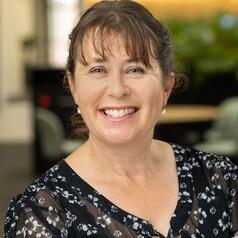
Elizabeth Wells
PhD Candidate, University of South Australia
Elizabeth Wells is a PhD candidate with the University of South Australia. She left working in libraries in central Victoria to come to South Australia and undertake research around restoring the therapeutic benefits of reading to people undergoing cancer treatment. She holds a BSc in Computer Science and History & Philosophy of Science from The University of Melbourne, a Graduate Diploma of Education (Secondary) from LaTrobe University, a Graduate Diploma and Master of Library and Information Management from the University of South Australia. Her main area of interest is reading for wellbeing, particularly for people affected by cancer and people in palliative care. She is also passionate about the role of libraries in our communities and pre-literacy and literacy programs. Elizabeth can be reached at [email protected]
Less ![]()
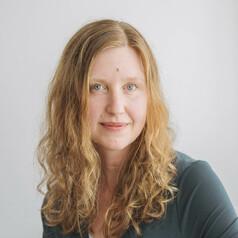
Elizabeth Williams1
Senior Lecturer, School of Cybernetics, Australian National University
Elizabeth Williams completed her PhD in experimental nuclear structure at Yale University in 2009. She completed post-doctoral work at Yale and CSIRO in Sydney, worked in nuclear reaction dynamics at the ANU, and began working with the ANU's 3A Institute (now within the School of Cybernetics) in 2018. Her current work aims to contribute to the creation of a new branch of engineering to help scale technology safely, responsibly and sustainably.
Less ![]()
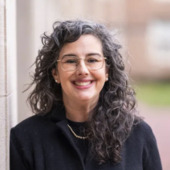
Elizabeth Wolfson
Assistant Director of Campus Partnerships for the Office of Public Scholarship, Washington University in St. Louis
Less ![]()
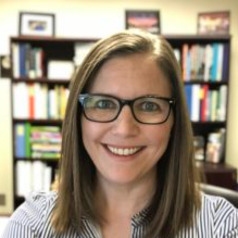
Elizabeth (Kip) Webster
Associate Professor of Exercise Science, University of Tennessee
Dr. Kip Webster’s research interests are focused on assessment, interventions, and policies related to fundamental motor skills and physical activity behaviors in pediatric populations. Her research involves school or early childhood education-based programs that target positive health-related outcomes, such as reducing childhood obesity and increasing physical activity, fitness, motor skill competency, and psychological variables related to health. Her recent research has examined the relationship between physical activity/ motor skill competency to screen-time behaviors, academic achievement, as well as early childhood education center policies that directly relate to improving pediatric health. She has received over $9.5 million in external and internal funding to support her work in pediatric health.
Less ![]()
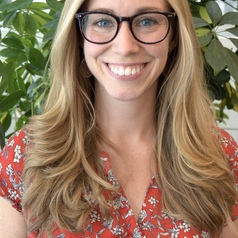
Elizabeth (Liz) Baker
Research Scientist, Department of Psychology, University of Calgary
Dr. Liz Baker is a Research Scientist at the University of Calgary and the Executive Director at PREVNet. She received her Ph.D. in experimental psychology from Kent State University and completed her post-doctoral training at the University of Calgary. Her research focuses on preventing dating violence, youth suicide prevention, promoting youth health, dissemination science, and program evaluation. She also works alongside policymakers to inform evidence-based decision making for social issues.
Less ![]()
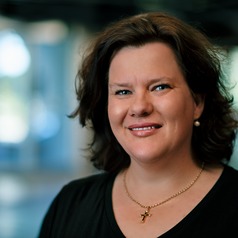
Elizabeth (Liz) Jackson
Associate Professor of Supply Chain Management & Logistics, Curtin University
Elizabeth (Liz) Jackson has national and international experience in industrial and academic agri-food supply chain systems. Her doctoral research focus was on wool commerce and she has since been engaged with research into farming systems and agri-food supply chains in the UK, Taiwan, Libya and Nigeria. Liz is a member-elected non-executive director of Sheep Producers Australia and is a member of WAFarmers' Livestock Council.
Less ![]()
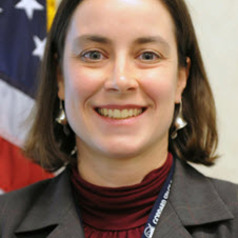
Elizabeth A. MacDonald
Space Physicist, NASA
My research has focused on experimental particle measurement techniques and data analysis in the magnetosphere and ionosphere for the last 15 years. Currently I am a Co-I on the Helium, Oxygen, Proton, and Electron Spectrometer on the NASA Radiation Belts Storm Probe mission. At Los Alamos National Laboratory, I was the PI for the Z-Plasma Spectrometer on the DOE Space and Atmospheric Burst Reporting System (SABRS) geosynchronous payload. I also led the Innovative Research and Integrated Sensing (IRIS) team in my group (www.lanl.gov/projects/iris). In the recent past I've led the DoE-funded Technology Infusion Project entitled Modular Advanced Space Environment Instrumentation (from 2009-2011) and served as the PI for the Advanced Miniaturized Plasma Spectrometer on the DOE SABRS Validation Experiment payload (2007-2008).
I have a blend of expertise in both instrument development and data analysis and interpretation that comes from sounding rocket and satellite instrumentation experience. This experience ranges over the complete cycle of instrument production, including design and modeling, integration and testing, calibration, satellite operations, and in situ scientific data analysis. As a result, I'm very interested in instrument technology development, basic magnetospheric science, and space situational awareness national priorities. My specific research interests include wave-particle interactions and the effect of plasma on radiation belt dynamics, mapping, coupling, and transport between the ionosphere and the inner magnetosphere, and the impact of heavy ions on geomagnetic storm processes.
I received my Masters and PhD degrees from the University of New Hampshire. I received a Bachelor's in Physics from the University of Washington, largely funded by a NASA Space Grant scholarship. I began work in Code 673 in February 2014.
Less ![]()

Elizabeth A. Silber
Senior R&D Scientist, Physics, Sandia National Laboratories
As a highly motivated and accomplished individual, I have dedicated my career to interdisciplinary research in several scientific areas, including physics, and planetary and earth science. I earned my PhD. in Physics and Planetary Science in 2014 (Western University, Canada) and graduated with an Honours BSc. (Specialization Astrophysics and Major in Planetary Science), with distinction, prior to that. Throughout my career, I have demonstrated a deep passion for learning and an insatiable curiosity about the world around me. My research interests are broad in nature, and I am constantly seeking new challenges and opportunities to expand my knowledge and expertise.
In addition to my research, I have also dedicated a significant portion of my career to teaching. With nearly a decade of experience in teaching physics, astronomy, and earth science courses, I have developed innovative and novel teaching methodologies. My extensive teaching experience spans from course and curriculum development to implementation, and I have enjoyed engaging with wide audiences, both in class and online.
Less ![]()

Elizabeth J Kuti
Professor in the Department of Literature Film and Theatre Studies, University of Essex
Less ![]()
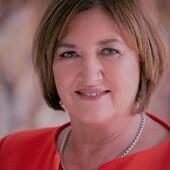
Elizabeth Jane Elliott
Professor of Paediatrics and Child Health, University of Sydney
Professor Elizabeth Elliott AM FAHMS FRSN MD MPhil MBBS FRACP FRCPCH FRCP is a Distinguished Professor in Paediatrics and Child Health at the University of Sydney; Consultant Paediatrician at the Sydney Children’s Hospitals Network (Westmead) and holds a prestigious National Health and Medical Research Council of Australia Leadership Fellowship.
She is an elected Fellow and member of the Council of the Australian Academy of Health and Medical Science, Fellow and James Cook Medallist of the Royal Society of NSW, and an Inaugural Fellow of the Academy of Child and Adolescent Health. She has specialist qualifications in paediatrics from the UK and Australia and is a Fellow of the Royal Australasian College of Physicians; the Royal College of Paediatrics and Child Health, UK; and the Royal College of Physicians, London. She has a research Doctorate in Medicine (oral rehydration therapy); and a Masters degree in Philosophy in Public Health (haemolytic uraemic syndrome) from the University of Sydney.
Elizabeth has dedicated her career to advancing the human rights, health, and quality of life for ill and disadvantaged children in Australia and beyond, through education, research, clinical care and advocacy. Specific examples include promoting the health and human rights of children disabled by rare diseases, fetal alcohol spectrum disorder (FASD) and vaccine-preventable and other infectious diseases; Aboriginal and Torres Strait Islander children, particularly in remote Australia; asylum seeker and refugee children, particularly in Immigration detention; children receiving cochlear implants; children with Female Genital Mutilation (FGMC); and children with cerebral palsy, including in developing countries in our region, particularly Vietnam.
She vigorously promotes gender equity for girls and women and Chairs the Royal Australasian College of Physicians Gender Equity in Medicine Committee. She was a member of the Advisory group to guide the University of Sydney’s participation in the Athena Swan program, which aims for gender equity in STEMM (science, technology, engineering, maths and medicine) and the Sydney Medical School’s gender equity committee and an invited speaker for GenWomen at the 2018 Sydney Science Festival onWomen in STEMM smash the glass ceiling.
She is the senior advisor on child health for UNICEF Australia and consultant to the WHO and the US National Institute on Alcohol Abuse and Alcoholism. She chairs the Australian Government’s national FASD Advisory Group and is a Board Director for the National Organisation for FASD and Royal Far West. She is widely published and has been recognised for her work nationally and internationally.
Less ![]()
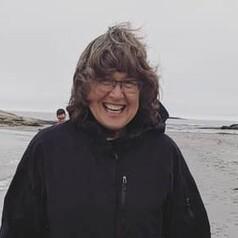
Elizabeth Kay-Raining Bird
Professor Emeritus, School of Communication Sciences and Disorders, Dalhousie University
Elizabeth Kay-Raining Bird, better known as 'Mandy', is a professor emeritus in the School of Communication Sciences and Disorders at Dalhousie University. Throughout her career, her clinical, teaching and research focus has been on the development, speech and language assessment and treatment of children with disabilities, particularly those from culturally and linguistically diverse backgrounds. Mandy also advocates at provincial, regional and national levels to institute a Canada-wide basic income guarantee--a powerful tool for poverty elimination and individual and societal health promotion.
Less ![]()

Elizabeth M. Hofmeister
Associate Professor of Surgery, Uniformed Services University of the Health Sciences
Dr. Hofmeister is a Pennsylvania native who has lived in Southern California since 1997, thanks to a 31-year career in the U.S Navy. The daughter of a registered nurse and a nurse anesthetist, Dr. Hofmeister set her sights on becoming a doctor during high school, and was one of a select few officers allowed to pursue a medical degree upon her graduation with distinction from the U.S. Naval Academy in 1989. She received her Doctorate of Medicine from the Uniformed Services University of the Health Sciences in 1993, and completed an Internal Medicine internship at the National Naval Medical Center in Bethesda. She then moved to Pensacola, Florida, where she received her Flight Surgery gold wings from the Naval Aerospace Medicine Institute, and then served as a flight surgeon on Marine Corps Base Hawaii for two years.
Her grandmother’s blindness from severe glaucoma and macular degeneration inspired her to seek a career in ophthalmology. She completed her ophthalmology residency training at Naval Medical Center San Diego, where she was among the Navy’s first surgeons trained to perform PRK and LASIK. She then pursued fellowship training in Cornea, External Disease, and Refractive Surgery at the prestigious Wills Eye Hospital in Philadelphia. Following fellowship training, she returned to Naval Medical Center San Diego, where she served as faculty until 2021. While on faculty, she deployed many times, including humanitarian missions on the hospital ship USNS Mercy, and a deployment to a combat zone in Afghanistan as the Deputy Command Surgeon of the Combined Security Transition Command in 2009. She has served in many leadership roles, including Ophthalmology Residency Program Director, Refractive Surgery Center Director, Ophthalmology Department Chairman, and the Navy’s Refractive Surgery Advisor from 2010 until 2020.
Dr. Hofmeister’s clinical interests as a Cornea Specialist include the treatment of dry eyes, viral and bacterial eye infections, and keratoconus. She performs cataract surgery, corneal crosslinking, full-thickness and partial-thickness (DSAEK, DMEK) corneal transplants. As a refractive surgeon, she has performed over 9,000 PRK, LASIK, and SMILE procedures, and is experienced with implantable collamer lens (ICL) surgery and refractive lens exchange. She is also one of the leading teachers of refractive surgery in the United States, having trained over 60 residents and fellows from three residency programs in her 21 years as a Navy Ophthalmologist.
An avid researcher, Dr. Hofmeister was an investigator on many studies of refractive surgery, with a focus on best practices, new technologies, and the safety of refractive surgery in patients with physically demanding jobs or austere work environments. She was the principal investigator on the landmark Patient-reported Outcomes with LASIK (PROWL) study, conducted with the FDA to assess patients’ satisfaction with LASIK.
Dr. Hofmeister is board-certified by the American Board of Ophthalmology, and is a member of the American Academy of Ophthalmology, the American Society of Cataract and Refractive Surgery, the Alpha Omega Alpha honor society, the Society of Military Ophthalmologists, and the American Society of Ocular Trauma. She is an Associate Professor of Surgery at the Uniformed Service University of the Health Sciences, and while in the Navy, held Adjunct Faculty Positions at the University of California San Diego, and Loma Linda University.
Some of her most gratifying moments have occurred during humanitarian surgical missions to Papua New Guinea, Fiji, the Philippines, and Honduras, where she performed manual small-incision cataract surgery, allowing patients formerly blind from cataracts to see their loved ones again. A highlight was her volunteer mission to Honduras, where her daughter provided Spanish translation with the surgical technicians in the operating room.
An accomplished vocalist and pianist, Dr. Hofmeister has performed with many amateur groups, and provides weekly music at her church. She loves hiking and travelling with her husband, who is also a physician.
Less ![]()
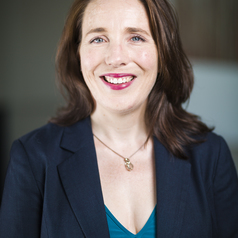
Elizabeth Mary Clancy
Lecturer, School of Psychology, Deakin University
I am an experienced researcher, teacher and evaluator, and a registered Psychologist, with a PhD in Psychology. My thesis addressed the issue of harmful online behaviours in emerging adulthood, specifically sext dissemination and the motivations for this and related behaviours. I also hold a Masters in Industrial and Orgnaisational Psychology, an MBA and Masters of Management, and Bachelor of Engineering.
Less ![]()
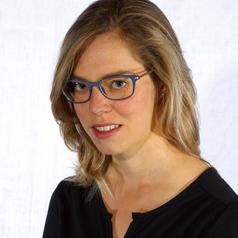
Elke Godden
Human Health Engineer and Doctorandus Applied Economic Sciences, University of Antwerp
Bachelor Bioscience Engineering University of Antwerp, specialization Cell and gene biotechnology (genetics, manipulation of cells, tissues and molecules).
Master Bioscience Engineering KU Leuven, specialization Human Health Engineering with minor Applications for Human Health
Currently following a doctoral degree in Applied Economic Sciences at the University of Antwerp, faculty of Business and Economics, research department Marketing.
ORCID: https://orcid.org/0000-0002-2656-6008
Less ![]()
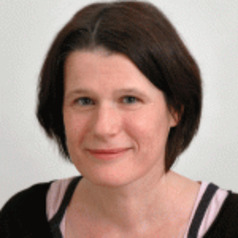
Elke Mühlberger
Professor of Microbiology, Boston University
I have a long-standing research interest in studying highly pathogenic hemorrhagic fever viruses, including Ebola and Marburg viruses which belong to the filovirus family. Filoviruses cause a severe disease in humans with high case fatality rates. Due to the high pathogenicity of these viruses, they are classified as biosafety level 4 (BSL-4) pathogens. My lab studies different aspects of the filovirus infection cycle. One focus of our work is to dissect the mechanisms of filovirus genome replication and transcription with the goal to identify determinants of virulence. This includes work on Lloviu virus, a new member of the filovirus family, whose pathogenicity in humans is not known. Tools we use for this work include minigenome systems and recombinant viruses.
Another focus of our research is centered around the host response to filovirus infection. To mimic the events in infected patients, we mainly use human primary cells for our infection studies. This includes macrophages and monocyte-derived dendritic cells isolated from blood, as well as human immune and liver cells generated from induced pluripotent stem cells (iPSC). The iPSC-derived infection platforms are developed in collaboration with tissue engineers at BU’s Center for Regenerative Medicine (CReM). We use these platforms to analyze the host response to filovirus infection, including inflammatory signatures, cell damage and antiviral defense mechanisms. The information we obtain from these studies will help us to determine virulence factors and identify targets for antiviral therapeutics.
Less ![]()
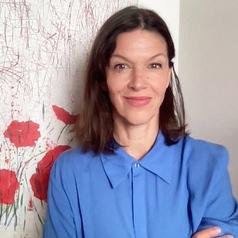
Elke Schwarz
Reader in Political Theory, Queen Mary University of London
I am Reader in Political Theory at Queen Mary University London, UK and my research focuses on the intersection of ethics of war and ethics of technology with an emphasis on unmanned and autonomous / intelligent military technologies and their impact on the politics of contemporary warfare. I am the author of ‘Death Machines: The Ethics of Violent Technologies’ (Manchester University Press) and have written extensively on military AI, autonomous weapons and the ethical implications of such military machines. I am a 2024 Leverhulme Research Fellow, with a project on the poliitcs of Apocalyptic AI.
Less ![]()
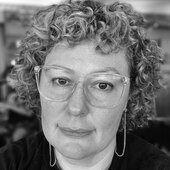

Ella Jackman
PhD Candidate, School of Medicine and Dentistry, Griffith University
Ella is a PhD Candidate in the School of Medicine and Dentistry at Griffith University, overseeing communications for the Ethos Project. Her primary focus in this role is to engage the community and key stakeholders using various communication channels. Ella develops Ethos-focused editorials, manages the Ethos Newsletter, and creates visually appealing materials such as posters and flyers. Most recently, she led the production of the Ethos heat communication videos and the Ethos Policy Report. Currently pursuing a PhD focused on heat communication, Ella's research interest is in driving behaviour change among older adults through innovative heatwave communication strategies. Her academic background includes a Master of Public Health, a Bachelor of Medical Science, and an honours degree in Environmental Science. Additionally, she studied Fine Art at the Pennsylvania College of Art and Design, which helps her communicate health issues through a creative lens.
Less ![]()
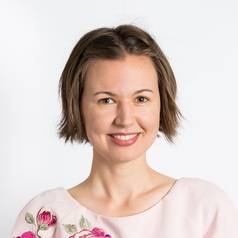
Ella Kuskoff
Research Fellow, ARC Centre of Excellence for Children and Families over the Life Course, The University of Queensland
Dr Ella Kuskoff is a Research Fellow at The University of Queensland. Her work focuses on three core manifestations of disadvantage: Domestic violence, poverty, and engagement in statutory child protection systems. Her work considers how these manifestations of disadvantage coalesce and compound in complex and often detrimental ways. She also considers how people’s (and particularly women’s) experiences of these forms of disadvantage are situated within and impacted by broader structural, policy, and service provision contexts.
Less ![]()
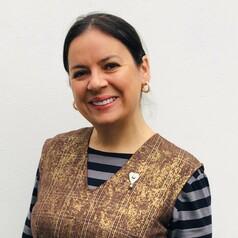
Ella Rabaiotti
Lecturer in Criminology, Swansea University
Ella has over 20 years’ experience working in criminal and social justice in Wales. A qualified Probation Officer, she has worked within adult and youth justice, and led on various initiatives, including restorative justice, integrated offender management and user engagement.
Subsequently, as Crimestoppers’ first Wales Manager, Ella created crime prevention films and education packages for its ‘Fearless’ youth scheme. After conducting action research within the charity, she went on to set up the Wales Safer Communities Network, before bringing her skills and experience into academia.
Ella's research interests span community safety and partnership working, as well as probation, young adults and social justice.
Ella is a Fellow of the Higher Education Academy.
Ella has over 20 years’ experience working in criminal and social justice in Wales. A qualified Probation Officer, she has worked within adult and youth justice, and led on various initiatives, including restorative justice, integrated offender management and user engagement.
Subsequently, as Crimestoppers’ first Wales Manager, Ella created crime prevention films and education packages for its ‘Fearless’ youth scheme. After conducting action research within the charity, she went on to set up the Wales Safer Communities Network, before bringing her skills and experience into academia.
Ella's research interests span community safety and partnership working, as well as probation, young adults and social justice.
Ella is a Fellow of the Higher Education Academy.
Less ![]()
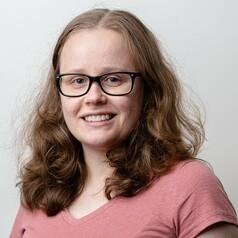
Ella Stewart-Peters
Affiliate, College of Medicine and Public Health, Flinders University
2013 - Bachelor of Archaeology (Flinders University)
2014 - Honours in Bachelor of International Studies, History (Flinders University)
2018 - Doctor of Philosophy, History (Flinders University)
Less ![]()
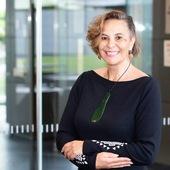
Ella Pēpi Tarapa-Dewes
Professional Teaching Fellow, Faculty of Arts and Education, University of Auckland, Waipapa Taumata Rau
Less ![]()
- Market Data





















